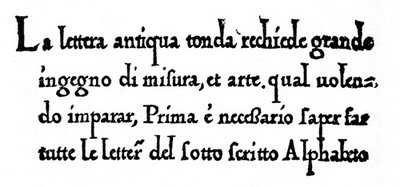Venetian Language: Difference between revisions
Created page with "frame|50px|An excerpt from one of Tagliente's, a Venetian writing master, writing books. Venetian, or Venetan (when speaking of the entire region), i..." |
No edit summary |
||
| Line 17: | Line 17: | ||
==Venetian Pronunciation== | ==Venetian Pronunciation== | ||
[[Image:venetian.gif|left|frame|50px|]] | [[Image:venetian.gif|left|frame|50px|]] | ||
==See Also== | ==See Also== | ||
[[Coats of Arms]] | [[Coats of Arms]] | ||
==Bibliography== | ==Bibliography== | ||
Latest revision as of 22:50, 23 July 2013

Venetian, or Venetan (when speaking of the entire region), is a Romance language spoken by more than two million people worldwide. The majority of this language settles around Venice and it’s surrounding areas but can be heard in Trieste, Croatia, Slovenia, Mexico and Brazil as well. Unfortunately, Venetian eventually gave way to the Tuscan dialect, which became the national language of Italy. One can still find Venetian spoken in Venice, but mostly in informal contexts.
Throughout the centuries, the language of Venice has outlasted multiple rulers and territorial changes until it found its home as Italy in 1870. In result of the many different peoples that have influenced the language, there are multiple varieties such as Venetian, Central Venet, Northern Venet, Western Venet and Colonial Venet. As with all Romance language, Venetian descends from Latin, but also happens to be more closely related to French and Spanish than to Italian.
Venetian Alphabet
A a B b C c Ç ç D d E e F f G g H h I i J j K k L l Ł ł / £ M m N n O o P p R r S s T t U u V v X x Y y Z z
Venetian Pronunciation

See Also
Bibliography
- Omniglot
- Veneto.org
- The Language of Linguistics - Dictionary and Research Guide
- Onpedia
- Sitoveneto
- Typefoundry